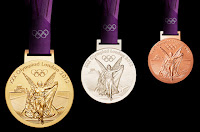Rubio is Wrong on Olympic Exemption
It looks as if Olympic fever may have gone to Marco Rubio’s head. That’s because, in the name of simplifying the U.S. tax code, the senator from Florida proposes to further complicate it. And he’s making this proposal on the coattails of our Olympic athletes.
In brief, Rubio wants to make tax exempt the prize money that the U.S. Olympic Committee awards to medal-winning athletes at the games—prize money that most Americans have been largely unaware of until the good senator proposed his bill. So, what’s a paltry two pages on top of an over 72,000-page tax code? It’s not as though tiny little exemptions are what made it grow complicated and cumbersome. Well, as concise as it is, Rubio’s bill goes directly against the point he is trying to make by introducing it.
Said Rubio,
“Our tax code is a complicated and burdensome mess that too often punishes success, and the tax imposed on Olympic medal winners is a classic example of this madness…”
Um, except it’s not. The fact that our tax code regards Olympic winnings—or Nobel or Pulitzer winnings, for that matter—like any other earned income, is a rare example of simplicity in the code. Most people aren’t professional athletes, so they can be forgiven for not knowing that the primary source of income for those not able to rack up endorsements is the prize money awarded to the top finishers. So while it may be politically popular to exempt Olympic winnings, there’s no principled reason why they should be treated any differently from any other income.
Rubio’s proposal is simply a pander to the national pride that the Olympics stir up by playing off a sense of fairness that is not fully availed of the facts. And where to begin with facts? It’s been bandied about that Olympic winners could pay up to $9000 in taxes from their winnings. I emphasize “up to” because those are key words which indicate a deception is coming.
While there is a strict truth to that—a gold medal winner receiving the $25,000 cash honorarium from the USOC and taxed at the top rate of 35% would owe the IRS $8,986—very few Olympic athletes meet the requirements to pay the full amount. Besides very few athletes earning the $388,350 required to enter the top bracket, an athlete can deduct expenses acquired in pursuit of that income, including training, equipment, travel, lodging, the list goes on. Figuring all of that in, most athletes should be able to bring their actual tax burden near to $0. So much outrage over so little.
Worse than making an unnecessary pander, Rubio’s motion undermines conservative credibility on a key issue. I’ve already touched on simplifying versus complicating the tax code. But this motion could further hurt conservatives because, as the most visible athletes tend to be those with the most endorsements and thus the most income, this motion could be misconstrued as aiming to help the wealthy. Finally, to pander in itself is decidedly not conservative, and in my mind, that is the worst part of what Rubio has done.
In brief, Rubio wants to make tax exempt the prize money that the U.S. Olympic Committee awards to medal-winning athletes at the games—prize money that most Americans have been largely unaware of until the good senator proposed his bill. So, what’s a paltry two pages on top of an over 72,000-page tax code? It’s not as though tiny little exemptions are what made it grow complicated and cumbersome. Well, as concise as it is, Rubio’s bill goes directly against the point he is trying to make by introducing it.
Said Rubio,
“Our tax code is a complicated and burdensome mess that too often punishes success, and the tax imposed on Olympic medal winners is a classic example of this madness…”
Um, except it’s not. The fact that our tax code regards Olympic winnings—or Nobel or Pulitzer winnings, for that matter—like any other earned income, is a rare example of simplicity in the code. Most people aren’t professional athletes, so they can be forgiven for not knowing that the primary source of income for those not able to rack up endorsements is the prize money awarded to the top finishers. So while it may be politically popular to exempt Olympic winnings, there’s no principled reason why they should be treated any differently from any other income.
Rubio’s proposal is simply a pander to the national pride that the Olympics stir up by playing off a sense of fairness that is not fully availed of the facts. And where to begin with facts? It’s been bandied about that Olympic winners could pay up to $9000 in taxes from their winnings. I emphasize “up to” because those are key words which indicate a deception is coming.
While there is a strict truth to that—a gold medal winner receiving the $25,000 cash honorarium from the USOC and taxed at the top rate of 35% would owe the IRS $8,986—very few Olympic athletes meet the requirements to pay the full amount. Besides very few athletes earning the $388,350 required to enter the top bracket, an athlete can deduct expenses acquired in pursuit of that income, including training, equipment, travel, lodging, the list goes on. Figuring all of that in, most athletes should be able to bring their actual tax burden near to $0. So much outrage over so little.
Worse than making an unnecessary pander, Rubio’s motion undermines conservative credibility on a key issue. I’ve already touched on simplifying versus complicating the tax code. But this motion could further hurt conservatives because, as the most visible athletes tend to be those with the most endorsements and thus the most income, this motion could be misconstrued as aiming to help the wealthy. Finally, to pander in itself is decidedly not conservative, and in my mind, that is the worst part of what Rubio has done.


Comments
Post a Comment